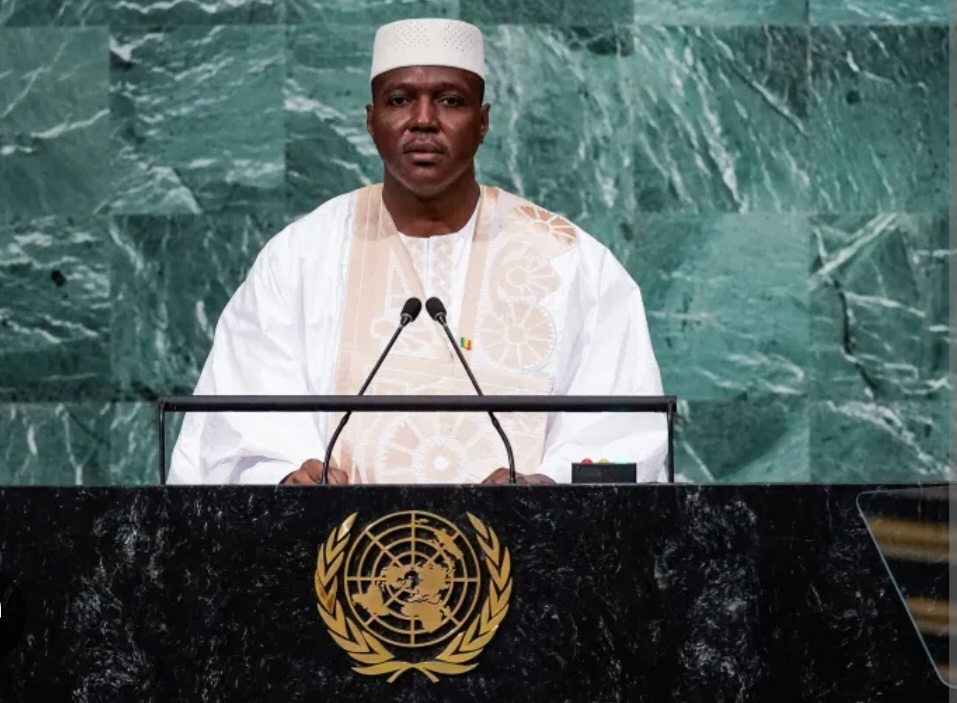
Ofure Akhigbe
The global spotlight fell on New York on Friday as Mali’s Prime Minister, Abdoulaye Maïga, stormed the podium of the United Nations General Assembly (UNGA) with a fiery address that shook the chamber. Pointing directly at Algeria, he accused its government of “international terrorism” for destroying a Malian military drone, warning that Mali and its allies in the Alliance of Sahel States (AES) — Burkina Faso and Niger — would not bow to intimidation.
The Prime Minister’s tone was defiant, his message unmistakable: the AES Confederation is united and ready to confront any threat, whether within or beyond its borders. “Under the leadership of our Heads of State, the Defense and Security Forces of the three countries of the AES Confederation work closely together in an unprecedented spirit of collaboration,” Maïga declared, his voice echoing through the UNGA hall. “In the face of attacks and adversity, we will not stand by: for every bullet fired at us, we will respond; for every word twisted against us, we will respond in kind.”
The speech came in the wake of bold moves by Mali, Niger, and Burkina Faso to withdraw from the Rome Statute of the International Criminal Court (ICC), denouncing it as “an example of selective justice.” Tensions with Algeria had already reached boiling point after Mali dragged its northern neighbor before the International Court of Justice, accusing Algiers of “premeditated destruction” of a reconnaissance drone in the volatile Kidal region.
Relations between Mali and Algeria have sharply deteriorated since the 2020 and 2021 military coups that brought a junta to power in Bamako. Once seen as a mediator in Mali’s conflicts with Tuareg rebels, Algeria now faces accusations of aggression and interference. While Algeria insists the drone violated its airspace near Tin Zaouatine, Mali has branded the downing as a blatant violation of sovereignty — a flashpoint that now threatens to reshape Sahel geopolitics.
Using the UNGA platform, Maïga called on the international community to recognize the AES Confederation as a stabilizing force in Africa. He warned that the battles being fought in the Sahel are not merely regional struggles but wars that carry implications for the peace and security of the entire world.
As extremist insurgencies rage across the region, and as the Sahel’s new alliance leans on Russia for security assistance after breaking ties with France, the defiant address at the UNGA marked a defining moment: the AES Confederation signaled to both allies and adversaries that it is here to stay — and ready to fight for sovereignty, stability, and survival.
